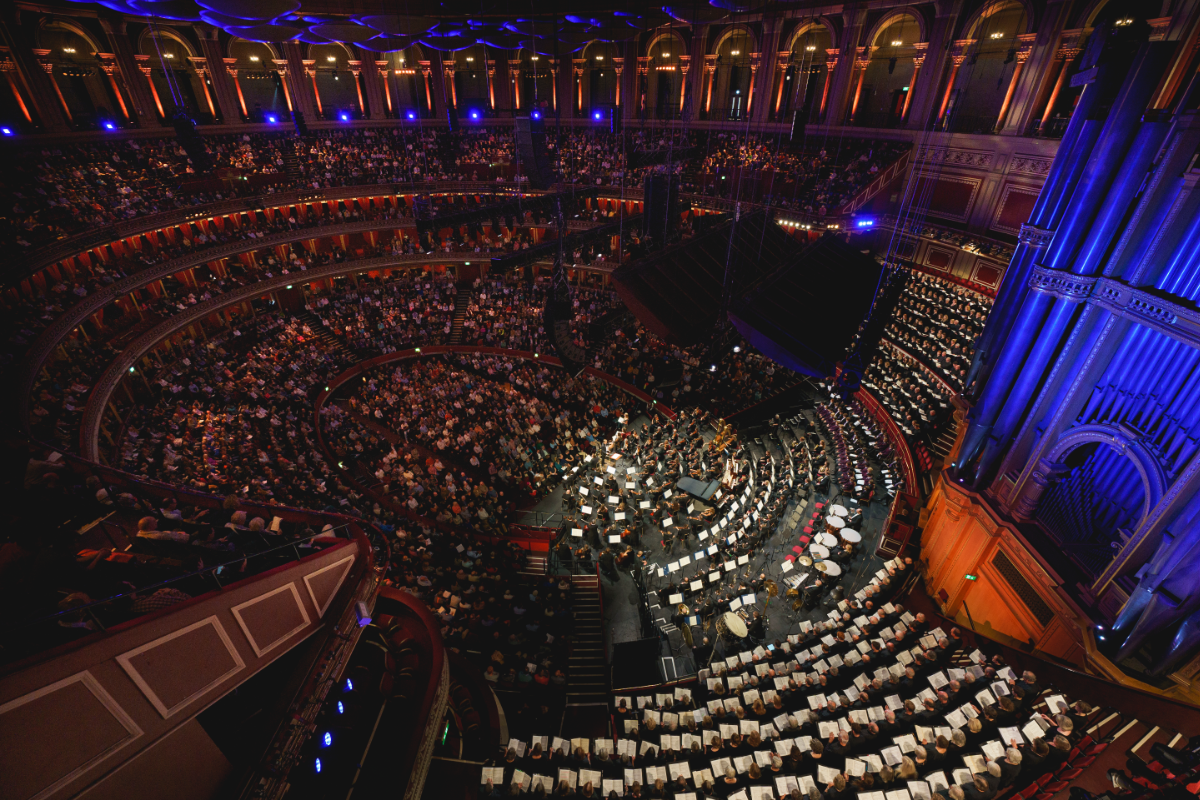
Royal Philharmonic Orchestra
Photo: Andy Paradise
Rising interest in orchestral music driven by young people
Report from the Royal Philharmonic Orchestra finds the younger generation is driving a rise in interest in orchestral music, with majority of school children interested in learning an instrument.
More people are listening to orchestral music as part of their daily lives today than before the pandemic, according to a report from the Royal Philharmonic Orchestra (RPO).
The RPO’s annual insights report, published today (1 March), found 59% of the public now regularly listens to orchestral music, compared with 55% pre-pandemic. Rising levels of interest are strongest among young people, with 65% of under-35s listening to orchestral music on a regular basis – 6% more than four years ago.
Under-35s were most likely to listen to orchestral music while cooking and were twice as likely as their parents’ generation to be listening while working, exercising, waking up, going to sleep or in the bath.
READ MORE:
RPO Managing Director James Williams told Arts Professional the findings were “really positive”, with the report's biggest learning for the orchestra being the “growing curiosity among the UK population for orchestral music”.
“Given all the headwinds that so many of the performing arts organisations have been facing as they recover from Covid and now deal with other significant challenges, it’s hugely encouraging to understand that there is a huge growing appetite year on year for orchestral music and engagement in orchestral music,” Williams said.
The RPO’s report also found audience's desire to book orchestral concert tickets is remaining consistent with pre-pandemic levels.
More than three-quarters (76%) said they would consider going to an orchestral concert in the next year, compared with a pre-pandemic figure of 79%.
The result marks an improvement from the RPO’s 2021 report, when audiences said they were lacking confidence to attend concerts in the wake of the pandemic.
This year, people under 35 were the most likely to say they would attend an orchestral concert, while family-friendly concerts and concerts featuring video game music are now more sought after than before the pandemic.
“One thing I find hugely encouraging out of the rise of people who are engaging in orchestral music is there is a huge appetite for the live performance,” Williams said.
“It helps shape our thinking around access for people. We understand particularly at the moment we are in a cost-of-living crisis and therefore we want to ensure there is access ticket prices.”
“It reenforces the need for us to continually think around those kind of different levels that people can access our work.”
Focus on young people
This year’s RPO report featured targeted questions for school children aged between six and 18, which Williams says was driven by the release of the National Plan for Music Education last year.
“We recognise that the next generation will be not only our audiences but will be musicians within our orchestra as well,” he added.
The report found eight in 10 children (79%) said there was a lot more that could be done to get young people into music, with two in five saying there should be more music lessons in school.
The number of school pupils that would like to learn, or are already learning, a musical instrument totalled 85% – a figure Williams told Arts Professional was “really encouraging” to see.
“There’s a huge appetite for music education in schools which clearly is a mismatch compared to actually what is going on,” Williams said.
“We’ve heard the rhetoric from central government is actually increasing STEM subjects, which inevitably means there is even less bandwidth for the performing arts within schools, so I think it’s very interesting that the narrative from government doesn’t actually match what people themselves want.”
The RPO’s latest report says there is a “great deal of work to be done” to nurture children’s interest in music, after appetite for learning a musical instrument was found to be lower among low-income families and people from rural communities, despite both groups displaying high levels of engagement or interest in orchestral music.
“The young people research has inspired us to redouble our efforts in terms of our commitment to particularly schools and education programmes,” Williams said.
“Orchestras are in one those positions where we are not there to deliver core music education, but we can support schools and support music education hubs through partnerships, and really look at how we can add the inspiration for young people to want to learn music.”
Join the Discussion
You must be logged in to post a comment.